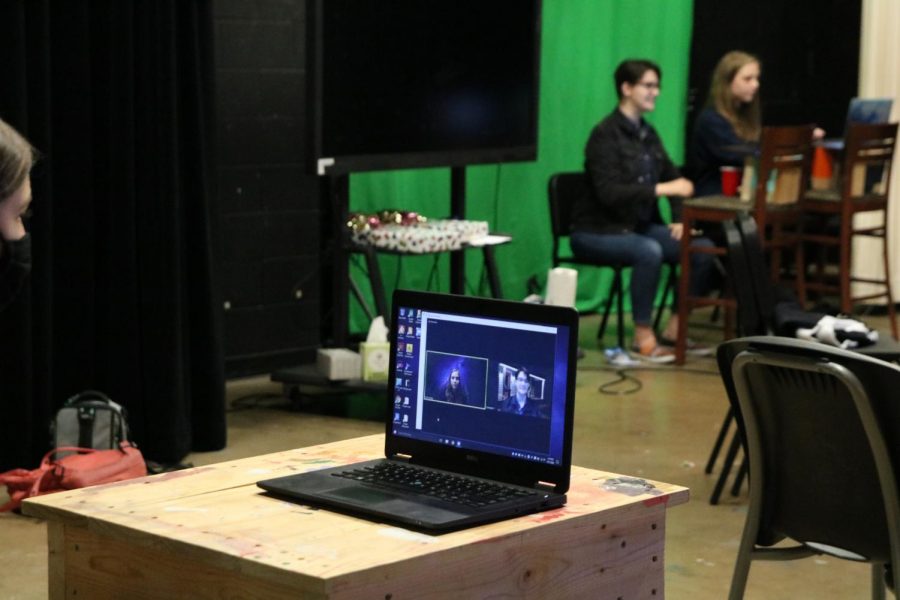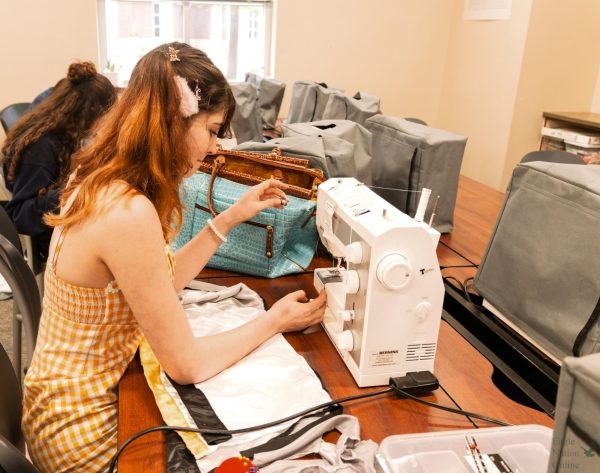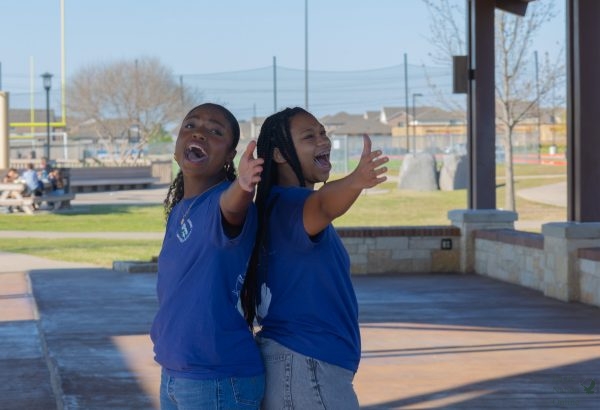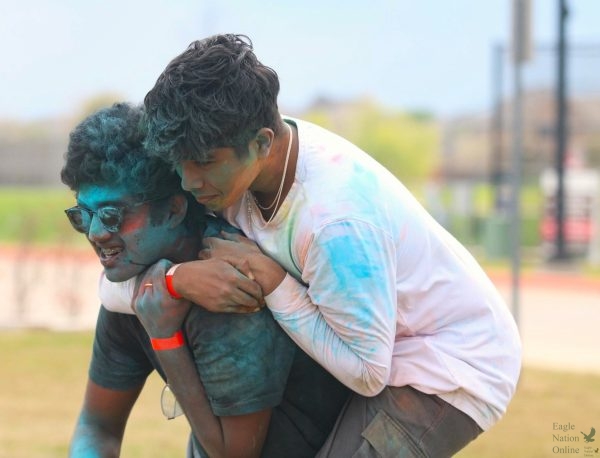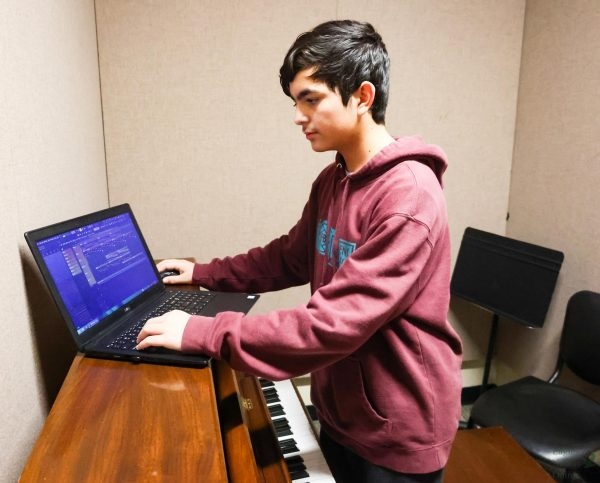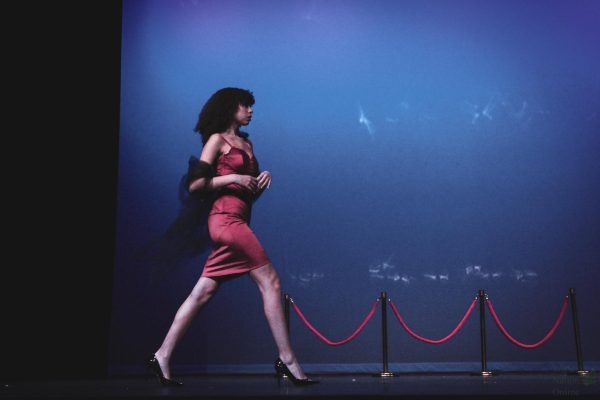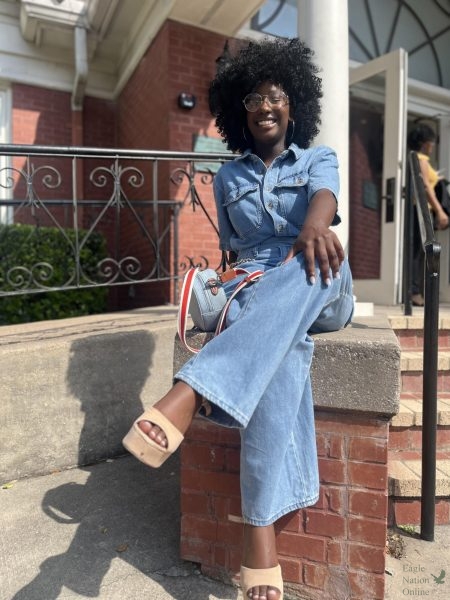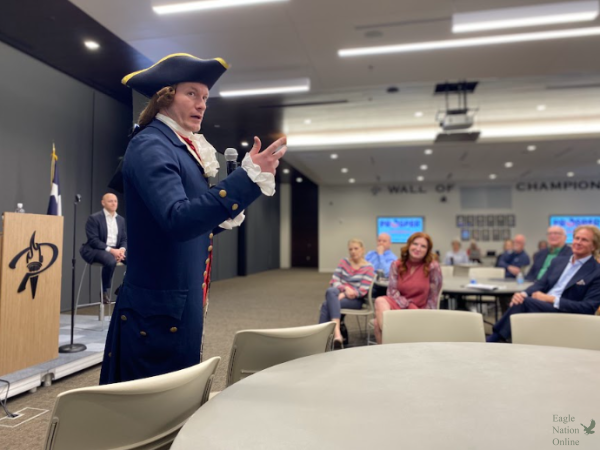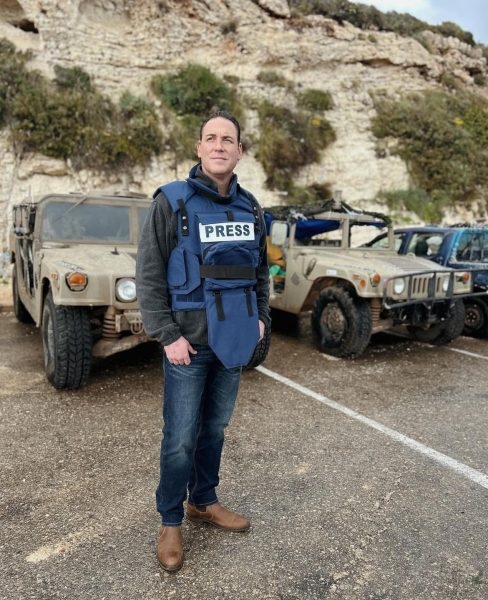Cast, crew highlight struggles of creating online show
Freshman Riley Collins and sophomore Max Hoffschwelle rehearse scene 7 for the virtual show, Almost Maine. The production will be accepting donations towards the department, instead of traditional tickets. “This production has been completely different than anything I’ve ever had to do so it was definitely a big adjustment,” Collins said. “It was weird not having anyone to physically contact when rehearsing, so I was very nervous when it came time to record for the play. Overall I’m really excited to be apart of Prosper’s first virtual production.”
After performing opening night on Thursday, Oct. 8, the theatre department wants fans to know that they can view its latest production, “Almost, Maine,” by John Cariani, any time by streaming it online here. Oct. 11 marks the final date the stream will still be available.
The romantic comedy highlights themes involving new relationships, love and loss. The plot continues with a series of multiple relationships that loosely connect.
The cast and crew of the show have attended multiple online rehearsals and even had to reshoot a portion of the scenes in person due to technical issues. The students have had multiple different experiences throughout the course of creating the show. Leaving their final view of the online production varied.
Blocking, or the cited locations of where an actor has to move throughout the course of a traditional play, was one of the first problems that arose.
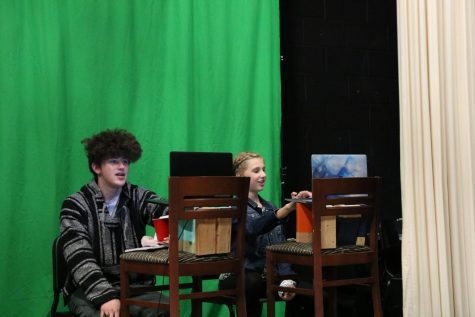
“You can’t see the body language of other actors, so during the process, you are just hoping (your movements) look good and you are matching the physicality of your scene partner,” sophomore actor Lauren Grammer said. “Having to adjust to new types of blocking has been a big challenge too.”
Frozen profile screens during rehearsal, power outages, forgetting to join the meeting, and calls dropping in the middle of discussions are just a few of the many issues the cast and crew have faced.
“It’s definitely been harder and more difficult than anything we’ve done before,” senior stage manager Grant “Bruce” Cardwell said. “However, the actors are more than ready for the challenge.”
With this production being virtual the actors have adjusted to being filmed, instead of normally performing in front of a live audience Cardwell pointed out.
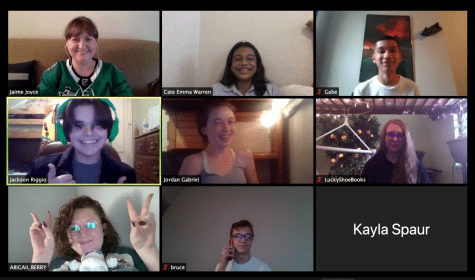
“They have been able to adapt to being in front of a camera instead of being in front of an auditorium full of people,” Cardwell said. “The tech on the other hand has also gone through some major changes.”
Normally, Cardwell would play a major role in set construction. He talked about the disappointments in not being able to do that with this play.
“We aren’t building a set, so for myself it kind of sucks not being able to build,” Cardwell said. “The closest thing to building a set, in this show, would be picking the background for actors during their scene.”
With the new platform came new projects arising as well.
“Things like lights have no room in this show, but we’ve had to pick up an editor that can piece the video together,” Cardwell said.
Students in the department questioned the role of technicians at the beginning of the show.
“Tech has been a little (challenging) since we all can’t come together in person,” sophomore editor Kylie Green said. “However, it is something new, and we are adapting well. It just requires a lot more scheduling and collaborative efforts.”
The director of the production, Jaime Joyce, was forced to learn new skills, and do certain actions that she didn’t originally believe she needed.
“Time and being able to adapt. Everything takes more time,” Joyce said. “You’d think with an hour of rehearsal you could get through an 8-10 minute scene several times, but that wasn’t the case. If an actor needed a prop and they had to hand it to the other actor in the scene, then you had to have identical props, especially since they rehearsed everything from home.”
With this being the first virtual show for the department, Joyce said she lost some creative control, but gained more patience for everything.
“You had to learn to worry about what you could control and loosely hold onto what you couldn’t but do the best you could: internet, family commitments, time, those were all things we couldn’t really control,” Joyce said. “We had to embrace the fact that it wasn’t going to be the same as a traditional in-person show, and be okay with that.”
From the beginning, Joyce has informed the students that working together will create the best environment and show possible. This helped most members to keep an open mind.
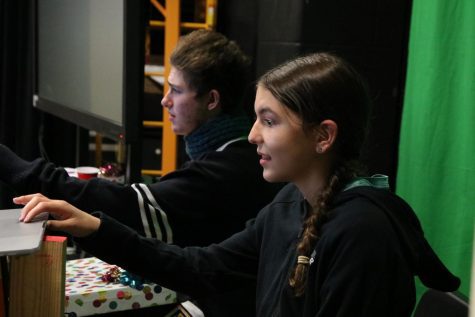
“We just had to roll with any difficulties that were thrown our way,” Joyce said. “None of us had ever attempted anything like this, so there was a lot of research that went on behind the scenes, and not everything worked. Flexibility was very important, and just being able to let go if something didn’t work and be okay with that. As a director and a creative person, that can be a very difficult thing to do. It was very much a collaborative effort with all the students involved, both acting and tech, and between myself, Mrs. Kirkley and Mr. Kullman.”
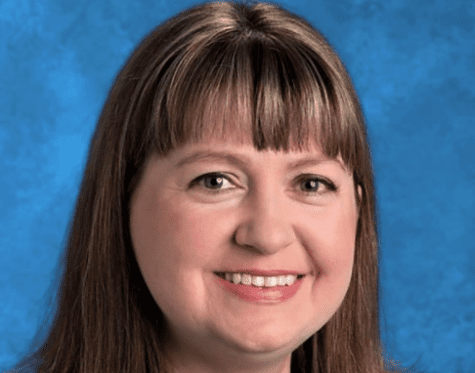
None of us had ever attempted anything like this, so there was a lot of research that went on behind the scenes, and not everything worked. Flexibility was very important, and just being able to let go if something didn’t work and be okay with that. As a director and a creative person, that can be a very difficult thing to do. It was very much a collaborative effort with all the students involved, both acting and tech, and between myself, Mrs. Kirkley and Mr. Kullman.
— Director Jaime Joyce
Theatre presents 1st virtual production with ‘Almost, Maine’
Theatre: ‘Big’ and ‘Little’ updates, changes bring new avenues of art
Your donation will support the student journalists of Prosper High School. Your contribution will allow us to purchase equipment and cover our annual website hosting costs.

Honors & Awards:
2021 Best of Texas Newspaper/Broadcast
Excellent Photo Gallery
Excellent Feature Photo
Honorable Mention Sports Feature Story
1 Best of SNO publication
Quill and Scroll Honor Society Member
NSPA Student Journalist National Honor Roll 2021
2022 Best of Texas Newspaper/Broadcast
Honorable Mention Feature Story
2022 Fall Fiesta Excellent Podcast/Interview
Eagle Nation Times Third Place Best in Show in Large 6A Print News 2022


